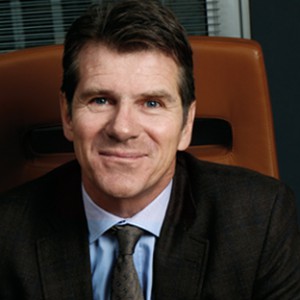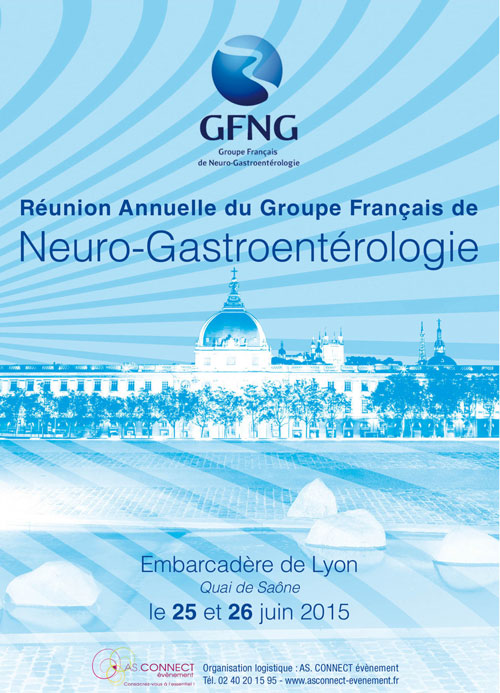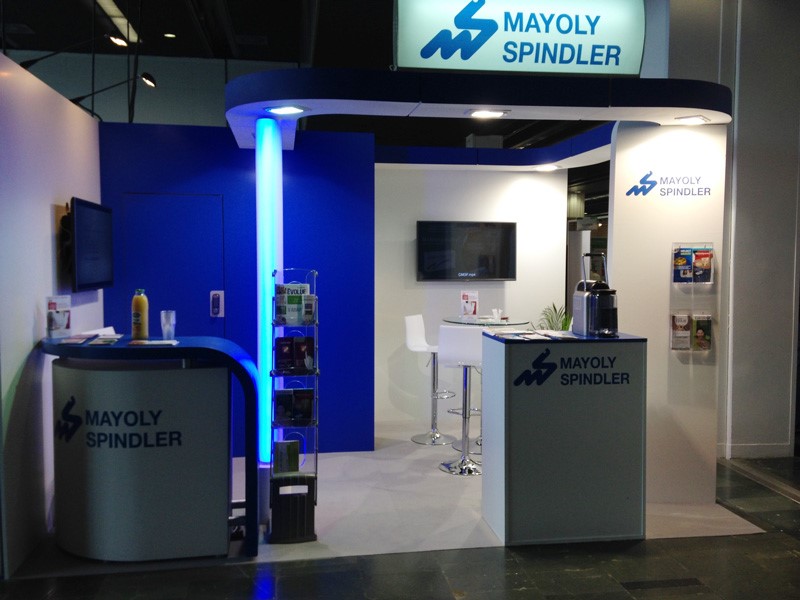Pharmaceutical Executive Magazine
Stéphane Thiroloix, CEO of the independent and family owned Mayoly Spindler, reveals how their vision is to become a reference company internationally in the field of gastroenterology and dermocosmetics; how already forty-five percent of their business is done overseas; and how on current projections, excluding external growth, they anticipate to grow by sixty percent by 2020.
You joined Mayoly Spindler as CEO in September 2014, after a career with big pharma. What inspired you to move from a large corporation to a smaller family run company?
The same parameters that kept me going in big pharma for many years. Rather than merely climbing up the corporate ladder, I was more interested in doing things that ensured I enjoyed work each day and piqued my interest. Big pharma is fun – there are great people, stimulating topics, and much to learn. One could really have fun for a lifetime, but after 25 years I was ready for a change in atmosphere. I loved every one of those years, but over time, two things happened. I climbed the ladder and acquired new responsibilities. At the same time, however, the constraints on how pharmaceutical companies operate became narrower. As my title became more important, paradoxically, I was less and less able to express the knowledge I had acquired over the years. The fun began to diminish and I therefore started to look for an environment where I could channel the breadth of knowledge that I had learned – in essence to become more of a generalist.
You feel that you found that with Mayoly Spindler?
Yes, most certainly. With this company being smaller, it is actually an environment where you can express more of the breadth of knowledge that you have to offer. I have been here a year and a half now, and it has delivered great opportunities every single day. It is a great place to work with many opportunities for growth.
What has been the mission assigned to you as the new CEO, and what are your long-term ambitions?
The long-term view has been, and remains, growth to the greatest extent that does not jeopardize our independence. For the owners it is more than simply about sales – this is a company that is connected to its family history and rooted as a source of jobs in the community. Our ambition is to become a reference internationally in the field of gastroenterology and dermocosmetics. You cannot label yourself a reference in any given field. It must come from others, from one’s peers. This is both a challenge, as well as a great source of motivation. In France we have KOLs in functional diseases that see our portfolio as “top drawer” – products they trust and use on a daily basis. Even though forty-five percent of our business is conducted overseas, we have not yet become a global reference – and we need to become one. The same is true when it comes to our dermocosmetics portfolio. We have the largest selling body moisturizer in France, Topicrem. The goal now is to further internationalize this brand.
Mayoly Spindler has strong brand-recognition in France, yet you are lacking the global strength of major international players. From a marketing standpoint, how do you address this issue?
We have successfully ensured that almost half of our business is conducted overseas. This has diluted the risk of concentrating too strongly on the French market, where there is greater market competition and fluctuation. We are now analyzing which countries to target in the next stage of our development. We will look to move from an export-based approach, to one more focused on establishing local strongholds. Despite having a strong base in France, we lack a Pharma presence in Europe’s other major markets: Germany, the UK, Spain, and Italy. In terms of geographic access, which is an important element in our internationalization strategy, we need to develop our footprint in these more mature markets. We have been enjoying increased market growth overseas, particularly in developing markets, including French speaking Africa, Russia, and Mexico. These markets, though, often engender a certain amount of instability. The recent fall of the Russian Ruble for example eroded sales, and a major bankruptcy with the third largest distributor in Mexico was also an unforeseen shock. This underscores again the necessity to balance our risk ratio as a company, and find ways to tap into a broader spectrum of markets. We have been working with registering our major products in different geographic areas. It is a trial and error process, but our main products are in a position to be marketed within these countries. We are seeking new partners that will take on our portfolio, and we are designing innovative solutions to establish significant market share in new geographies.
With this new portfolio, are you concentrating more on OTC products, or seeking other options in these new markets?
We have articulated our growth and international strategy in pharma through prescriptions because there is a notion that Rx is a more universal process: there is a disease, we look for an effect, there is a prescription, a pharmacy, and overall there is a sense of formality to the process. Whereas, with the OTC and self-medication market, it is very culturally influenced, with different countries having different products and different brand names. Yet we are experiencing something interesting in that some of the response to our export portfolio has been suggestions of what can be sold as OTC in other locations around the world. It is coming to our attention now that we have international potential with our OTC portfolio.
Dermocosmetics is one of your main portfolios, which has found much success in France. What has been your experience in navigating expansion strategies within this product market?
In dermocosmetics, companies spend big to grow in France, to build a name in order to utilize that status for sales elsewhere. In our case, we are growing faster than the market in France. Considering the importance of international expansion, turning towards Asia in the dermocosmetics market presents considerable opportunities. We now have market managers in the Latin American and Asian markets. This demonstrates our focus on increasingly tapping into global markets. Our approach in this regard is the following; do fewer things better, and also have company representatives available on the spot in markets, so that there is a greater relation with customers, and more frequent interaction.
In 2013 you signed a global partnership with Ipsen. What has this partnership meant for Mayoly Spindler, and what does Mayoly Spindler offer to the likes of Ipsen, one of France’s largest pharma companies?
Our partnership covers France, but also China and Mexico. In France, it is structured as a cross-promotion agreement for primary care activities: Mayoly’s MeteoSpasmyl benefits from Ipsen’s strength in promoting medicines to general practitioners. In return, Ipsen benefits from Mayoly Spindler’s experience with pharmacies, as we help Smecta and a few more brands gain market share at pharmacy level. We also promote Ipsen’s Smecta (under the brand Iprikene) in Mexico and Ipsen markets our Meteospasmyl in China. It has been a very meaningful benefit to both companies.
You are a relatively new CEO taking on responsibilities of a family run company steeped in its own unique culture and work-habits. What has been your experience in adapting to this change?
Mayoly has been brilliantly run for many years. I concentrate on the company’s commitment to high standards in execution, something that is crucial to our identity as a company. This will remain, even with our plans for rapid growth. For a new CEO, as has been the case for me, three to four months are necessary to observe and listen to what is happening in the company around you. The area that we have moved most rapidly on is the centrifugation of decision making. An interesting idiosyncrasy of family run companies is indeed that there is not a single question that does not merit going right back to the owner! My challenge is to push decision making to the edges. We have been working on governance, empowering individuals and teams to make decisions, ensuring that the lateral connections do not only happen at the executive level. As in any human environment, there are occasional mental barriers towards change, so we have worked on those. Contrary to publicly traded entities, family-owned companies generally are under little pressure to disclose data, and inertia tends to sway towards little information flow. Together with the Executive Committee, we have worked hard to open these information channels and disseminate vital decision-making data; we observed true empowerment gains in return.
It sounds like you have worked to find a balance between the working culture of a small family owned business while implementing standards seen elsewhere in large corporate companies. What other elements in this regard have you worked on?
Large companies and big pharma are stereotypically assumed to exert high pressure on results. Symetrically, there is an assumption that privately-owned companies are gentler; In many ways they are, but it is wrong to translate that into an absence of results-orientation. In fact the incarnated reality of the shareholding family can be seen as additional pressure to deliver vs the rather distant existence of speculative investors. A culture of high standards and a reasonable sense of urgency are therefore perfectly compatible with a family-owned environment. Mayoly Spindler has exciting growth prospects for the near future to look forward to. Our current projections, excluding external growth, anticipate for us to grow 60 percent by 2020 – this is extremely promising. Dermocosmetics will double over the next five years. Significant change is inevitable – there will be growing pains, and change hurts before it becomes pleasant, but we will be true to our commitment to maximize growth whilst remaining independent. In any case the journey together must always remain enjoyable and our leadership role includes making sure our teams enjoy the ride. We must ensure that we focus on the journey as much as we do on the targets.
Any thoughts you would like to share about the French healthcare market as a small, yet growing, company within the industry?
There is room for success in the French pharma market. Whilst it has become increasingly challenging for costly innovation endeavors and rather devastated in entire segments of the generic market, there are still very relevant pockets in the pharma market where agile companies can operate successfully. Like all our peers we deal with risk, we deal with administrative viscosity, but with a solid portfolio, a strong team and valuable partners we feel very strong expanding into other markets with France as our launchpad.
Click here to read more articles and interviews from France, and to download the latest free pharma report on the country.
GFNG
Les Laboratoires Mayoly Spindler sont engagés dans l’environnement du Syndrome de l’Intestin Irritable, notamment en tant que partenaire du Groupe Français de Neuro-Gastroentérologie. Dans ce cadre et comme chaque année, nous participons à la Réunion annuelle du GFNG qui se déroulera à l’Embarcadère de Lyon les 25 et 26 juin prochains. N’hésitez pas à venir échanger sur notre stand où notre équipe se fera un plaisir de vous accueillir.
Pour plus de détails : gfng-2015-lyon
GFNG
Le Groupe Français de Neuro-Gastroentérologie (GFNG) associe des unités cliniques et fondamentales qui s’intéressent aux mécanismes et aux traitements des pathologies fonctionnelles associées aux douleurs et à l’inconfort digestif.
La Réunion Générale du GFNG a eu lieu cette année les 25 et 26 juin à Lyon, et a fédéré une centaine de participants dont 9 orateurs nationaux et internationaux (Suédois, Espagnols, Suisses).Les congressistes ont pu assister et discuter avec les intervenants lors des différentes sessions scientifiques, notamment sur le Syndrome de l’Intestin Irritable. Les orateurs y ont abordé les thèmes de l’hypersensibilité viscérale, de l’inflammation des muqueuses et du ballonnement abdominal.
Les laboratoires Mayoly Spindler étaient comme chaque année présents à cette réunion pour soutenir et s’engager auprès des gastroentérologues et de leurs recherches.
Nominations
Après l’arrivée de Stéphane THIROLOIX au poste de Directeur Général en Septembre 2014, l’équipe de direction des Laboratoires Mayoly Spindler s’étoffe pour poursuivre et amplifier la stratégie de développement de l’entreprise engagée par son Président Jean-Nicolas VERNIN.
Michel VAIRON rejoint le Comité Exécutif à la tête de la Direction des Opérations Industrielles, supervisant tous les aspects de la Production ainsi que la Qualité, les Achats Industriels et la Supply Chain. Docteur en Pharmacie et titulaire d’un Master en Management Industriel, Michel VAIRON a connu une carrière industrielle internationale et était précédemment Directeur Général de Stradis.
Aude REMOND rejoint l’équipe de Michel VAIRON en qualité de Directeur de la Qualité Pharmaceutique. Docteur en Pharmacie et titulaire d’un DU, précédemment Responsable Assurance Qualité des Laboratoires Ethypharm, Aude Rémond apporte une forte expertise de management dans le domaine de l’assurance qualité.
Pascal FRUIT prend la Direction du Marketing Pharma, responsable des équipes marketing France et International pour les produits de Prescription et OTC du portefeuille pharmaceutique. Pharmacien et MAE, précédemment chargé des projets de développement du laboratoire HRA, Pascal FRUIT a dirigé des unités marketing et des Business Units dans des grands groupes pharmaceutiques, et mené des missions entrepreneuriales dans des entreprises de taille moindre.
Valentin-Vajislav VALCIC prend la responsabilité du Planning Stratégique. Diplômé de l’université de Capetown et titulaire d’un Executive MBA d’HEC, Valentin-Vajislav VALCIC était précédemment Senior Business Operations Finance Partner chez B.Braun Medical.
Ils rejoignent l’équipe des Laboratoires Mayoly-Spindler pour relever des challenges ambitieux en termes de développement du portefeuille de produits, d’internationalisation et de renforcement de son efficacité opérationnelle.
L’AGA à la Française connecté.
La 14ème édition de l’AGA à la Française s’est déroulée samedi 27 juin à Paris et confirme une nouvelle fois l’engagement de Mayoly Spindler en Gastro-entérologie.
Cette nouvelle édition, placée sous le signe de la modernité, était pour la première fois retransmise en direct sur internet afin de faire partager au plus grand nombre de gastro-entérologues à travers le monde les nouveautés marquantes de la DDW (congrès de gastro-entérologie américain qui s’est tenu à Washington en mai dernier).
Hormis les 30 présents à Paris ce samedi 27 juin, ce sont plus de 220 gastro-entérologues qui se sont connectés simultanément depuis l’Algérie, le Maroc, la Tunisie, les Antilles et le Liban… mais également depuis le Sénégal et le Cameroun, où 3 réunions locales ont été organisées afin de permettre à une quarantaine de gastro-entérologues de suivre le symposium.
Tous les participants, présents à Paris ou connectés, ont pu poser leurs questions à nos experts.
Et pour ceux qui n’ont pas eu l’opportunité de suivre l’AGA à la Française en direct, l’intégralité des vidéos est désormais disponible sur la plateforme internet mayoly-spindler.connectfactory.com.
Si, vous aussi, vous le souhaitez, nous vous invitons à vous inscrire sur le site :
- Connectez-vous au site mayoly-spindler.connectfactory.com
- Cliquez sur « vous inscrire » et remplir le formulaire
- Un e-mail de confirmation vous sera envoyé instantanément ; cliquez sur le lien pour activer votre inscription
- Vous pourrez alors vous connecter à la plateforme mayoly-spindler.connectfactory.com
CMGF
Les laboratoires MAYOLY SPINDLER ont participé au 9ème Congrès de la Médecine Générale de France qui s’est déroulé du 26 au 28 mars 2015 au Palais des congrès de Paris.
Ce congrès est organisé par le Collège de la Médecine Générale, il a accueilli cette année 4 000 participants, dont 72 partenaires industriels.
Son objectif est de permettre aux médecins généralistes de s’informer, de se former et d’échanger librement autour de leur pratique quotidienne.











